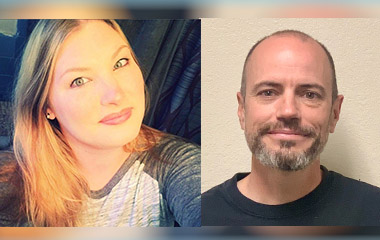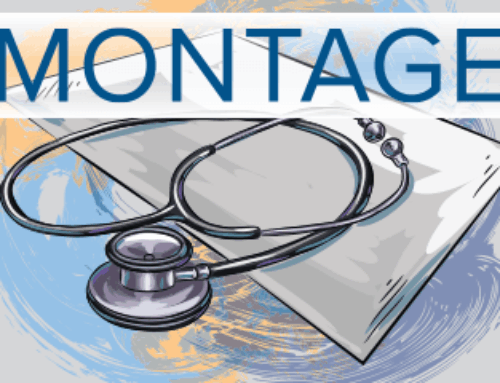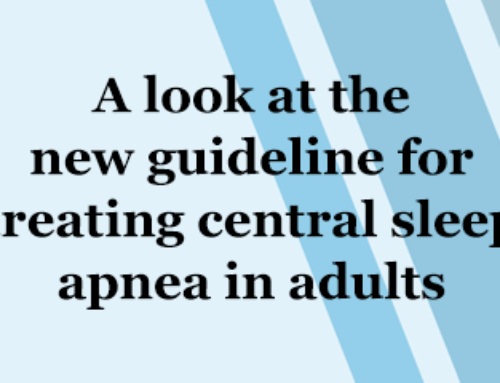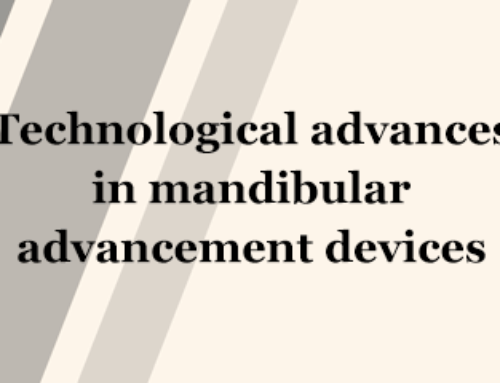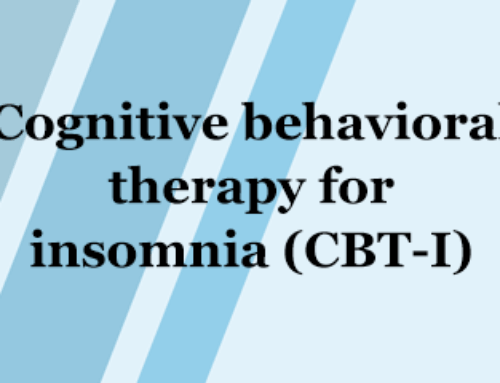Sleep technologists are vital members of the sleep team. At the forefront of technology and testing, sleep technologists provide comprehensive patient care and education at sleep centers around the world. AASM Sleep Technologist and Respiratory Therapist Assembly Chair Todd Burchard, RPSGT, and Vice Chair Matthew Balog, MPH, CCSH, RPSGT, asked sleep technologists Melissa Sanchez, CPSGT, and Tj Woffinden, RPSGT, some questions about their careers and the field of sleep medicine. A shorter version of this discussion appears in the Summer 2020 print issue of Montage.
What sparked your interest to become a sleep technologist?
Melissa Sanchez: As a person interested in working in a care-giving capacity, I always knew the field of sleep medicine intrigued me. With that said, my spouse has sleep apnea and is currently receiving treatment with CPAP therapy. It’s been my passion to expand my knowledge to better understand his medical condition and be able to help others in the process.
Tj Woffinden: I had an aunt who worked in sleep and would occasionally speak about her experiences. I had a general interest in all things science, and after college I became aware of an opening in the sleep department at the University of Utah. Curiosity first drew me to sleep, but I did not expect it to become my career. I became passionate about the science of sleep as I learned more and participated with the sleep community.
Where were you 10-20 years ago?
MS: Ten years ago, I was enrolled in a nursing program when I realized that sleep medicine sparked my interest. I explored programs that allowed me to further my knowledge of sleep medicine.
TW: Ten years ago, I was working at the University of Utah sleep lab in Salt Lake City. Twenty years ago, I was a bit of a tumbleweed, wandering around central California and Utah rock climbing and socializing.
How has the field changed over your career?
MS: I am new to the field; however, I appreciate the continuing education credits that are required to stay compliant to advance within the field and to expand on any new developments in sleep medicine or my job as a sleep technologist.
TW: Dr. Jones at the University of Utah sleep lab often spoke about the newness of sleep medicine. I’m happy to report the continued evolution of sleep. Masks are becoming more comfortable and diversified, and the technology of PAP therapy is becoming more complex to treat more difficult conditions. Understanding and therapies for a wide variety of sleep conditions have evolved.
What tools do you feel are needed by technologists to adapt to the changing health care landscape?
TW: A healthy dose of flexibility as a personal tool, and a lab that knows how to adapt to the changing environment of sleep medicine. Everything is changing: how and what we can bill, the technology we use, how we interact with our patients. Education and training are, of course, key for both the tech and the lab in such a dynamic field.
MS: I think it’s important to have up-to-date equipment while also requiring CECs, which will allow the technologist to adapt in this ever-changing health care landscape.
Where do you see the sleep field going in the next decade? What can we do to start preparing?
MS: In the next decade, I expect the sleep field to explode. I think sleep medicine is still in its infancy in a sense, and that people need to continuously be made aware of the importance of healthy sleep, and the impact it has on health. More individuals should be trained in sleep so that we have adequate staff to support the growing field.
TW: I think sleep is going to change in big ways, perhaps more so than since its founding. Masks are going to get more comfortable and user-friendly, CPAP machines more intelligent, techs more educated, and patients will have better outcomes and better adherence. Keep current if you want to know what you will be dealing with. Sleep conferences, sleep media, and other passionate sleep workers can help keep you informed.
What do you like the most about the field?
MS: What I like most about the field of sleep is the opportunity to help individuals on a personal level. I enjoy sharing my knowledge with my patients and interacting with people of all ages. It is truly a unique opportunity in which I get to make a difference and help people each time I go to work.
TW: I love that we change lives so quickly. Diet, exercise, and other activities are all important, but it all starts with sleep. Most productive changes take time and hard work. However, in sleep medicine we see patients’ lives improve in dramatic ways in just a couple weeks, and occasionally overnight. Sleep is a multifaceted good. We help patients sleep better, which helps them stay awake better and often improves their mood and quality of life. Better sleep helps them stay more active, make better food choices, and enjoy their life more. This is why I’m a sleep tech.
Describe your greatest accomplishment in sleep medicine.
MS: My greatest accomplishment so far has been to complete an associate degree in polysomnography. That training has been beneficial in preparing me for the role of a sleep technologist.
TW: Hands down, my greatest accomplishments in sleep medicine are the improvement of the patients’ quality of life.
What do you wish was different about the field? How can we come together as a society to help overcome/change these obstacles?
MS: What I have noticed in my short time as a sleep technologist is that everyone in the field has knowledge to offer. I think those new to sleep can learn a lot from those who have been in sleep for a long time. I also think those who have been in the field a long time can learn from those who are just coming into it. We can continue to find ways to be more collaborative with technologists, managers and doctors in coming together and learning from each other.
TW: I wish I could get a few hours’ sleep during regular sleeping times. If it were possible to keep my circadian rhythm more normal by getting a few hours of sleep during my graveyard shift, it would have greater value than any sleep I might get once the sun comes up. I may still need a nap later, but at least I wouldn’t feel like I have never-ending jet lag. I spoke to a sleep doctor at the pediatric sleep conference. He said he was part of a movement to help shift workers who do so much for society. Night techs are part of a group who are at higher risk in almost all areas of their lives. He suggested better health care coverage, earlier age of eligibility for retirement, a type of hazard pay, and efforts to research those affected. I was surprised to hear his ideas, and after consideration, I think this makes a lot of sense.
How can a technologist progress in the sleep field?
MS: A sleep technologist can progress in the sleep field by constantly striving to learn new things. CECs help with exposing the technologist to new things that arise within the field. Exploring the different educational pathways for a sleep technologist could be a good place to start. Perhaps one day, there will be even more structured degree programs for a sleep technologist to choose from as the field continues to advance and gain popularity among those interested in a career in sleep or health care.
TW: There are a lot of sleep labs one may work for, but not all have a vested interest in you or your progress. Find an organization that educates its employees and helps them get and keep their credentials.
On which topic do you wish there were more information available?
TW: I wish we had better monitoring and measuring for both pre- and post-PSG, including more points of data. As a tech, we get a glimpse of what people struggle with and the results of our labors. I had a patient approach me in the grocery store raving about how good he felt. “We gotta tell people about this!” he exclaimed. Being a tech is about the good, not the glory, so it’s nice to see the results occasionally and see how we can do better.
MS: I believe that my program very adequately prepared me for my new role as a sleep technologist; however, I think there can always be room for improvement. Having more courses dedicated specifically to scoring may be helpful, as well as more education behind the specific therapies and treatments and why they work. Since graduation, I have purchased a few books on sleep medicine, and they contain this additional information and more. I find having these resources to be very helpful as references to any questions I may have or simply for clarification purposes.
What have you learned while on the job that you think would be helpful to other sleep technologists?
MS: I have learned that it is crucial to ask questions. If there is one piece of advice that I could give to other technologists, it would be to continuously be receptive — to realize that there is always more to learn. An open mind is key, and it will benefit both the technologist and the patient.
TW: Being a tech is hard but rewarding. Sleep medicine can prevent illness, accidents and nuclear meltdowns. It saves lives and money. People often struggle to know if they are doing any good in the world or if what they do has value, but as a sleep tech, you know.
This article appeared in the Summer 2020 issue of Montage, volume 5, number 2. To read more content from this issue, click the button below!

